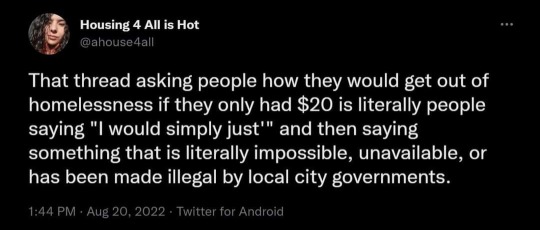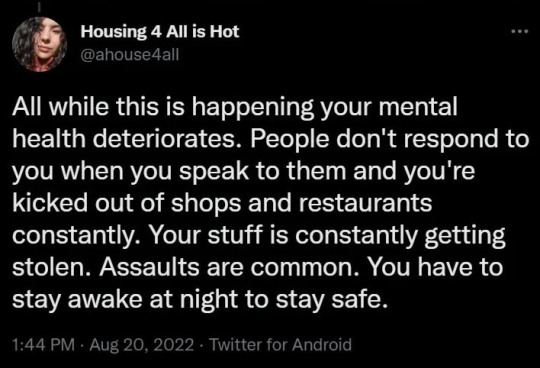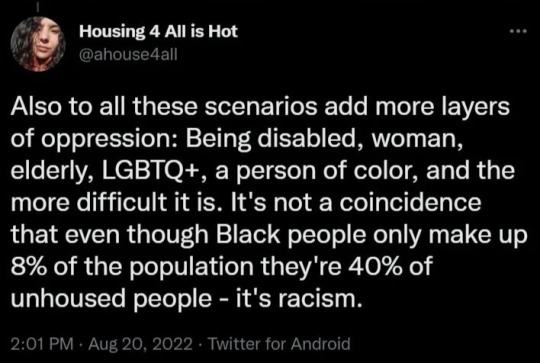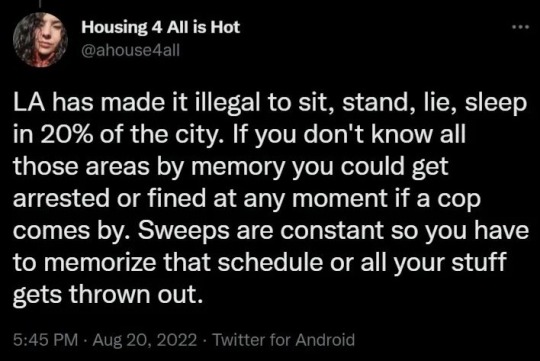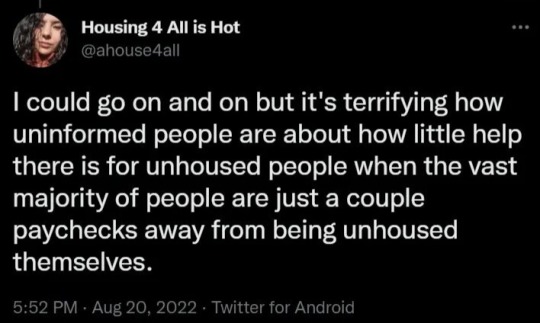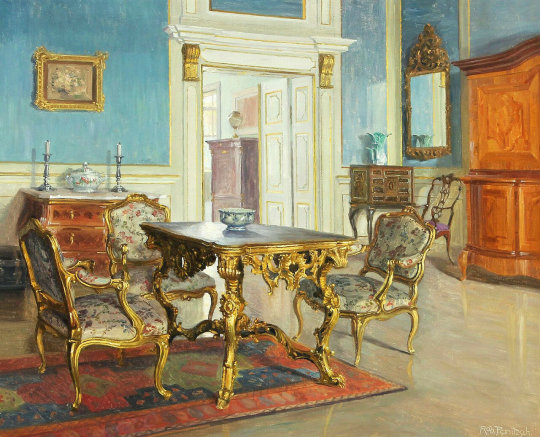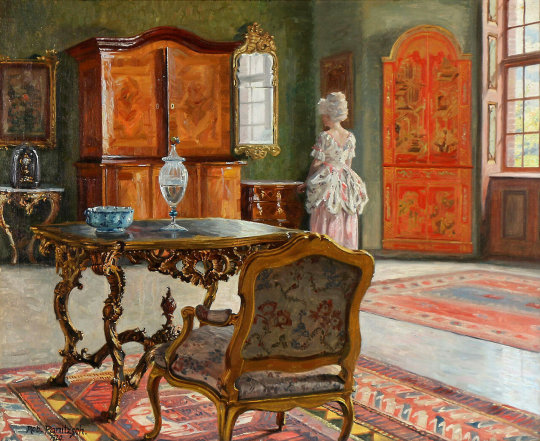Text
jstor is my boyfriend i love you jstorrrrrrrr
478 notes
·
View notes
Text
people who don't study history will simply never understand the joy of reading historian beef. there's nothing like it
3K notes
·
View notes
Note
You mentioned fanon turning barty crouch jr. into an uninteresting character. I don't know much about what the new fanon characterisation has really done with him, but I'm curious for your thoughts on why he's a canonically interesting character. I agree that he is, but it sounds like you might have some interesting thoughts on it that are already fleshed out.
thank you for the ask, @jamesunderwater, and i'm sorry for taking so long to drag myself around to answering this.
as you may have gathered if you’ve read my views on jegulus or wolfstar, the common fanon interpretation of marauders-era characters and i don’t really get on.
this is not a new development - me and goofy fanon sirius have been beefing for over a decade at this point, i fear - but our enmity has taken on a new form since (roughly) 2020, when the emergence of what we might call the modern marauders subfandom brought with it a whole series of expectations about characters, ships, personalities, and appearances in first war stories which, let me state my position immediately, have absolutely nothing to do with the characters as they are in canon.
i could talk about sirius or regulus or james or snape or lupin until the cows come home - as, i’m sure, could many of us - but i also dislike the expectations the marauders subfandom has around its supporting cast. these characters - who largely fall under the categories of women, slytherins, or both - have names that we might recognise from canon, but they are - to all intents and purposes - original characters.
to do some marauders fan defending, i do understand the rationale behind this. hogwarts is a school, and it needs to be filled with the sort of incidental characters that lightning-era writers can pull from the canon text (shoutout to ernie macmillan, the mvp). if you’re writing about lily, then she needs friends - why not have them be alice, marlene, dorcas, emmeline, pandora etc.?
[well, because dumbledore isn’t running a child army. it makes no sense for the entire order of the phoenix to be in the same school year - and the idea that alice is probably around ten years older than lily, that pandora is around the same age as narcissa malfoy and isn’t a pureblood, and that marlene, dorcas, and emmeline are hard-nosed ministry bitches in their fifties who can have mad-eye moody quaking with just a look is something which can be prised from my cold, dead hands.]
and if you’re writing about the epic highs and lows of high-school football going to school during a sectarian conflict, then you need some antagonists. which is to say, you need some slytherins.
the issue i have is that the three key slytherins who seem to have been elevated to principal cast in the marauders pantheon - regulus black, barty crouch jr., and evan rosier - get what can only be called the smol bean treatment. that is, that three teenagers who all canonically join a terror organisation are turned into soft and tiny babies who thought lord voldemort was just feeling silly when he said, ‘my aim is the eradication of the muggleborn population through violent means.’
and even fics which do acknowledge that the three willingly become terrorists often go out of their way to provide justifications for this which don’t contextualise their decision (something which is important - you can’t write about snape becoming a death eater without acknowledging the way that poverty, loneliness, and a sense of hopelessness make someone an easy target of radicalisation) but which minimise it. sometimes, their violence is turned into romantic vengeance - i’ve seen a fair amount of suggestions that barty goes to torture the longbottoms because frank was the auror who killed evan. sometimes, authors imply - or even outright state - that there’s no need to see these boys as aspiring villains: voldemort is right; the class system is good and should be maintained; and purebloods (usually james, sirius, regulus, barty, evan and maybe a token woman or two) should stick together while the half-breeds and the mudbloods go hang.
this - like all aristocracy wank in this fandom - annoys me enough with regulus and evan. but it’s particularly grating when it comes to barty crouch jr. because - unlike evan, who is literally just a name in the text, and regulus, who isn’t much more - he actually has a canon personality.
and it’s fascinating. indeed, i would even go so far as to say that barty crouch jr. is the greatest villain in the harry potter series.
[my apologies to lord voldemort.]
after all, even though he’s been imprisoned under the imperius curse for over a decade, barty is still so lucid and powerful that he is able to:
produce magic capable of tricking the goblet of fire, which is treated by all the adult characters involved as unprecedented.
pull off a year-long impersonation of a man whom dumbledore evidently knows extremely well without being clocked until his mission has been successful, even though his opportunities to observe the real moody can have been virtually non-existent. he is in character within seconds of his ambush on moody’s home - after the intruder-alert dustbins are set off - and is able to persuade ministry personnel who can be presumed to have met moody personally (including both amos diggory and arthur weasley, who appear to know him not only personally, but well) that he is the real deal. he maintains his performance even under close scrutiny from the teaching colleagues he has to interact with daily at hogwarts, despite the fact that he presumably can’t get a great deal out of the real moody, since he’s having to be kept deliberately weak and docile under the imperius curse.
manipulate multiple people into become accessories to his crimes, without ever being suspected of doing so. with the hindsight of knowing who he is, the first defence against the dark arts lesson in goblet of fire, in which ‘moody’ deliberately distresses neville by using the cruciatus curse directly in front of him, before swooping in to be the person to cheer him up so that he can plant information which will help harry win the triwizard tournament and deliver him to voldemort, is chilling. he just gets unlucky that harry has the biggest martyr complex in human history.
commit murder on hogwarts’ grounds without ever being suspected of wrongdoing.
execute lord voldemort’s plan to kidnap harry and use him in his resurrection ritual flawlessly. the plan itself may be convoluted - but dark lords are allowed to have a flair for the dramatic, as a treat - but, crucially, it works, and barty succeeds in every respect.
but, i concede, we’re talking about the adult barty here. perhaps he was once a sweetheart who went unfortunately off the rails after his father sent him to prison and then - in effect - drugged him for years. that wouldn’t be a ridiculous suggestion.
except for the fact that - canonically - the teen barty was just as clever, sly, manipulative, and - above all - ardent in his support for voldemort as his adult self.
at his trial in the early 1980s, young barty gives the performance of a lifetime. he screams, he shakes, he looks terrified of the dementors, he is pale and weak and harmless-looking, he begs his mother to help him, he pleads with his father for mercy, he maintains his innocence as he is dragged off to his cell. he gives off the impression of simply having been in the wrong place at the wrong time so well that harry potter is almost certain that his conviction is illegitimate. so too, it is implied, is albus dumbledore.
indeed, barty plays the part of the wrongfully imprisoned so well that - as canon tells us - he not only influences public opinion to be broadly in favour of his probable innocence (or, at least, his diminished culpability - sirius suggests that the widespread view was that he was probably there, but that he only ended up involved in what was clearly bellatrix’s idea because of his father’s failure to relate to him properly), but also changes public opinion against the government’s anti-death-eater strategy entirely. following his imprisonment, his father - a man who never met an extrajudicial punishment he didn’t like, and whose ruthless approach to dealing with the death eaters in the first war (such as his use of internment for suspected terrorists, his order to aurors to shoot to kill) was, we are told, enormously popular with the wizarding public - is forced to resign in disgrace from his role as head of the department of magical law enforcement. crouch sr. is quietly shuffled off into a boring bureaucratic position, his ambitions to be minister in tatters, and his only way forward to free his son from the prison cell where he is languishing for the crime he very literally did.
[as an aside, i do think that we are supposed to read that bellatrix is the ringleader of the torture of the longbottoms. but, all too often, that gets reduced to her doing everything while rodolphus, rabastan, and barty just stand there gormlessly. they were clearly performing the curses too!]
now, barty’s unusual cunning can - of course - be explained by narrative reasons. the text needs to conceal that he’s the villain (since, as with philosopher’s stone, it wants to imply that the dark lord’s faithful servant at hogwarts is severus snape) until the very end - and this naturally requires dumbledore to not think too hard about whether his good judy alastor is behaving even more strangely than usual.
the text also needs to suggest that he is innocent in order to properly stick the landing on the narrative role of his father - barty crouch sr. as with dolores umbridge in order of the phoenix, crouch sr. exists to show harry (and the reader) that the rot in the wizarding world was not caused by - and will not stop with the defeat of - voldemort. his ruthlessness and inflexibility, his lack of respect for due process, his astonishingly cruel treatment of winky (brutal beyond even the standard way in which wizards abuse their enslaved elves) all serve to teach harry that the anti-voldemort cause can become just as easily corrupted as the disillusioned young men in voldemort’s orbit. the suggestion that crouch sent his own son to azkaban without good reason, simply because he would not deviate from his beliefs, is an important lesson to harry about what ‘justice’ actually means.
but, despite this, barty is also able to pull off his deception because he’s spectacularly talented. it’s not all just narrative.
and his talents are caused by characteristics which aren’t good or bad in and of themselves. he’s clearly very intelligent (he got twelve owls, the series’ benchmark for genius). he’s hyper-observant, creative, adaptable, good under pressure, and possessed of nerves of steel. he shares these traits with other villains in the series - voldemort above all - but he also shares them with plenty of the heroes. harry, for one.
which is to say that all of his personality traits could be put to non-criminal uses. but - as with harry, who is capable of being quite sinister when he wants to be (for example, when he manipulates slughorn into giving up the horcrux memory) - they would give a non-criminal barty an edge. and this doesn’t seem to be present in his standard fanon persona - as sweet and goofy as all marauders-era men - to any great extent.
finally, there is another aspect of barty’s character which is absent from his fanon version - that he clearly has some sort of childhood trauma, but that this does not excuse any of what he does.
even though crouch sr. is right to send him to azkaban, he was clearly also a cold and distant father, who had absolutely no idea how to relate to his son.
[as another aside, this emotional negligence is bad enough without it needing to be written as having been accompanied by extreme physical and/or sexual abuse. there seems to be a real tendency in fan-fiction - not only in marauders-era stuff, although the exaggeration of orion and walburga black into despotic villains is one example of this - to make childhood misery ‘worse’, in order to justify a character’s later actions.]
voldemort demonstrably uses barty’s terrible relationship with crouch sr. (and his absolutely flagrant daddy kink) to groom him into taking the dark mark (not least because there’s otherwise no explanation for why he cheerfully informs him that he too is named after his dad), which he may very well end up taking when he’s still at school. my reading is that he’s recruited to inform on his father - since voldemort would undoubtedly wish to keep the head of the department of magical law enforcement under constant surveillance - and that this is why the dark lord pays him the attention he is so obviously lacking.
but, as with snape and regulus and draco malfoy and all the other young death eaters, barty also colludes in his own radicalisation. voldemort is a master at ensnaring recruits, sure, but he’s also a busy man. he only bothers to make the effort because the clever, creative, cunning, manipulative young man - who wishes to avenge himself on the father who never paid him attention (sound familiar?) - he finds before him is very much determined to become a spectacular part of his terrorist organisation. and stories which feature him owe it to him to give him that dark complexity of character
show the series’ best villain some respect.
203 notes
·
View notes
Note
Call for asks: I’ve noticed you’ve avoided saying anything about Jegulus for the last few asks so…. Jegulus 😈
anon please, i’m not avoiding saying anything about jegulus, i genuinely don’t know her.
but, fine, let’s imagine i do.
i don’t enjoy it as a pairing, not because i think it’s unfeasible (in my view, the joy of fanfiction is taking a completely implausible premise and making it work), but because i don’t like the way that the fandom which has built up around jegulus expects certain tropes and characterisations which turn the characters into just profoundly uninteresting people.
and this is the case for all the marauders and marauders-adjacent characters (i’m looking at you, fanon barty crouch jr.), undoubtedly because the era has so little actual canon material that fanon becomes canon and authors run from there. and that’s great - anyone writing stories in a world hostile to hobbies and creativity is a triumph - but the standard way of writing jegulus which has coalesced around this fanon doesn’t appeal to me in the slightest.
there are many jegulus tropes i don’t love: how it always becomes a parallel wolfstar (james and peter would be the cultured choice if we have to do that); how it’s just drarry but in the seventies (when the cultured choice for that is lucius malfoy/arthur weasley); how james becomes a tediously good person when the evidence of canon is that he’s a bit of a dick; how it relies on an exaggerated portrayal of orion and walburga’s abusive parenting which misses the fact that regulus evidently colluded with them against sirius; how it assumes the marauders aren’t intensely codependent (sirius mentions-lily-once black is definitely going to let his brother hang around with them, sure); how snape is sometimes there and always a knob; james and regulus are so similar in terms of background, social position at school etc. that there’s no juicy spark (as in snack, for example); prongsfoot is canon; and so on…
but the biggest reason i can’t get into it?
regulus is a death eater, and not by mistake
now, we all love a fluffy no-voldemort au, but unless that is a jegulus author’s stated setting, they are going to have to deal with the fact that regulus fucking loves the dark lord. this is a teenage boy who has press clippings about voldemort’s terrorism taped above his bed, he knows exactly what he’s getting into and he likes it.
indeed, my reading of deathly hallows is that regulus’ decision to go and get the locket has absolutely nothing to do with a damascene conversion that conducting a campaign of sectarian violence against muggles and muggleborns is bad, but that learning of the existence of the horcrux - and also voldemort’s lack of respect towards his property, kreacher (after all, we see an attitude expressed canonically by wizards that other people’s slaves are not your concern) - makes clear to him that the dark lord’s aims are not oligarchy, with those from pureblood families ruling in happy condescension over a ministry which is fundamentally unchanged, but ruling in majesty as an immortal absolute monarch. his death is a repudiation of his beliefs, yes, but it is a repudiation of the fact that he believed voldemort was his champion, rather than that he believed voldemort was wrong.
and, actually, i don’t think this in and of itself makes jegulus insurmountable. james is a pureblood, and while there is absolutely no evidence in his few canon appearances that he harboured blood-supremacist views, the very fact of his background would allow a complacency which might let him overlook some of regulus’ opinions (think, for example, about ron’s attitude towards house elves). equally, we have no evidence that regulus couldn’t completely disavow his former beliefs.
but, it requires the fact that regulus isn’t just a tiny baby who aspires to join a terror group by mistake to actually be dealt with, and i have never seen a single piece of jegulus which does so.
260 notes
·
View notes
Note
oooh i’m always so excited when i see your wip posts! i’d love to hear about one from each section—the secret history, effraction, and dreaming of spires.
i hope things are looking up, in life and in fandom 💖
thank you very much for the ask, anon - and i'm very sorry that it's taken me quite so long to get around to answering your question about the work in progress tag game list.
but nonetheless, excellent choices!

the secret history is a piece I'm working on for @ladiesofhpfest - and, specifically, for the fortnight of the fest which will focus on queer women in the harry potter universe [you can find the full schedule of themes here]. this was a week of the fest i loved writing for last year - as, indeed, i loved writing for all of them - but i was struck when i looked back over my pieces that they'd all focused on cisgender women.
and i think it's important - not least because i occupy a fandom based in a text written by someone whose view on gender are actively harmful - that i broaden the spectrum of womanhood this time around.
the secret history is, then, a character study of severus snape as a transgender woman. one of the things which is striking about the canon snape is the way in which so much of his [the pronoun the text suggest snape is comfortable using, although she'll think differently in this piece] characterisation is gendered, and - in particular - gendered in a feminine sense intended to, on some level, mark snape out as odd, improperly masculine, subordinate and so on. the women's clothing he's wearing in his first appearance, the nickname 'snivellus' with its implication that real boys don't cry, the way his manner and appearance are written about, the fact that his patronus is a doe... all of these are features which the text uses to set snape in contrast to the more straightforwardly masculine james and harry.
but they can also be read as things that she might reclaim, might take pride and find acceptance in, might use to piece herself together over the course of her journey to becoming.
and i can promise a happy[ish] ending.


i'm apparently a glutton for punishment, which means that - when the last chapter of one year in every ten is posted this summer - instead of relaxing i'm getting straight back into it with more tomarrymort. effraction is that tomarrymort.
they're getting stuck in a time loop triggered by the sojourn in king's cross and harry is pissed about it.
and - well - all that pent-up rage has to go somewhere...


the dreaming spires can be best summed up by this.

who is gargling whose bathwater? let me know.

10 notes
·
View notes
Note
Thoughts on Ron and Hermione as a ship?
thank you very much for the ask, @thesilverstarling!
i’ll state my position straight away: book ron and hermione are the best of the canon couples.
they will have a long and extremely happy marriage made rich by great and stalwart love, lust, fun, and faithfulness, rather than held together by duty and couples’ therapy like so many readers and authors (including jkr, who seems to have decided to spend the years since the conclusion of the series failing to understand anything about her own characters) tend to think.
i will state another position straight away: lest i seem like i’m just a fan with blinkers on, i think this even though hermione is, by far, my least favourite member of the trio. if she were real i would detest her, and i dislike how she is treated by the narrative as always justified in her negative characteristics. i like fanon hermione - perfect and preternaturally good - even less.
as a result, i think that it’s ridiculous that jkr has said that she thought ron needed to ‘become worthy’ of hermione. they belong together as equals - which is what they’re set up in the narrative as being from the off - and i hate seeing that undermined.
because ronald weasley? he’s an icon. and he doesn’t get anywhere near the respect he deserves in fandom.
there are multiple reasons for this - ron’s narrative purpose is to be the everyman sidekick, and so he is able to be less special than harry or hermione (the helper-figure); the amount of aristocracy wank in this fandom means that the weasleys’ ordinariness is less appealing to writers than making harry have twenty different lordships and call himself hadrian; the narrative interrogates ron’s flaws - especially his capacity for jealousy - much more intensively than it interrogates either hermione’s (cruel, inflexible, meddling) or harry’s (reckless, self-absorbed, judgemental) - but one i feel is particularly significant is that ron is such a british character that many of his traits are not understood as intended by non-british readers.
in particular - as is outlined in this excellent meta by @whinlatter - ron’s sense of humour isn’t indicative of immaturity or a lack of seriousness, but is, in fact, evidence that he’s the most emotionally aware of the trio.
ron is shown throughout the series to understand how both harry and hermione need to have their emotions approached - and i think there is no piece of writing which says this better than crocodile heart by @floreatcastellumposts:
That was what she liked most about Ron, she thought vaguely. He was very good at being suitably outraged on your behalf. For Harry, for her, for Neville. That sort of thing mattered, when you were hurt or embarrassed or wronged in some way. You needed to have someone else on your side, to be as emotional as you felt, maybe even more so, so that you might feel a bit more normal. It was very decent of him, and she was not sure he realised he did it.
ron’s inherent emotional awareness is an enormous source of comfort to other people. he does the work which isn’t flashy or special - he makes tea and tells jokes and is just there - but which is needed in healthy human relationships far more frequently than a willingness to fight to the death for the other person.
[as an aside, this normality - even though i think it is assumed rather than justified by the text - is also what ginny provides for harry. if you believe that hinny are a good couple but romione aren’t… i can’t help you.]
but let’s look at some specific reasons why ron and hermione belong together:
their communication styles mesh perfectly. ron is the only person hermione knows who feeds her love of being challenged and debated, and who is able to engage in this way of communicating without becoming irate when she refuses to back down. ron is good at picking his battles, but he’s also good at recognising that hermione’s tendency to argue isn’t intended to be confrontational a lot of the time - it’s just the way she works through feelings and problems. he’s far more easy-going about her tendency to nag, interrupt, try to provoke arguments, or speak condescendingly than he’s given credit for - and hermione evidently respects this, since when he does tell her not to push a situation (above all, when she’s trying to needle harry into talking about sirius), she listens to him.
that ron and hermione’s tendency to bicker is taken by fans to be a bad thing is because it’s something harry - from whose perspective the narrative is written - doesn’t understand. harry is extremely conflict-avoidant - he tends to take being pushed on views and opinions he has to be insulting; and he has a tendency to assume that he is right which is just as profound as hermione’s. he and ginny communicate not by debating, but by ginny having no time for his rigidity and refusing to indulge it - but ron and hermione bickering about everything is not a negative thing within their specific emotional dynamic.
[as another aside, this glaring chasm in communication styles is why harry and hermione would be a disaster as a couple.]
they each provide validation the other needs. it’s clear - reading between the lines - that hermione is a tremendously lonely person. the friendlessness of her initial few weeks at hogwarts seems to be a continuation of her experience as a child, and - outside of ron and harry - that friendlessness endures through her schooldays. i’m always struck, for example, by the fact that, when she falls out with ron in prisoner of azkaban, she has no-one else to spend time with, and that this is only avoided in half-blood prince because harry decides not to freeze her out. i don’t think her friendship with ginny is anywhere near as close as fanon seems to imply (ginny has no interest in being nagged either), nor do i think that she’s anywhere near as close to neville (not least because she is so condescending to him) as she’s often written to be.
and this loneliness seems to stretch beyond hogwarts. the absence of hermione’s parents’ from the narrative is - in a doylist sense - clearly just a device to maximise time with the trio all together, but the watsonian reading is that she doesn’t have a particularly good relationship with them. hermione’s obviously upper-middle-class background - the name! the skiing! the holidays in the south of france! - can be presumed, i think, to come with a series of expectations from her parents which she feels constantly that she’s not entirely meeting, particularly expectations attached to academic success.
[for example, the grangers - were she a muggle child - would undoubtedly have ambitions for her to attend an elite university and then go into a prestigious career. tertiary education of the type that they’re familiar with doesn’t seem to exist in the wizarding world - most careers seem to be taught by apprenticeship - and this, alongside all the other divides between the magical and muggle worlds which contribute to the distance between them, would be one very obvious area in which she felt the need to prove herself to them.]
ron, too, has quite a difficult relationship with his position in the family - voldemort’s locket is not wrong to point out that he seems to receive considerably less of his mother’s emotional attention than ginny or the rest of his brothers - and he too is constrained by expectations which he doesn’t know how to explain he has no interest in - above all, molly’s desire for her sons to achieve top grades and go into the ministry.
he also suffers while at hogwarts from being ‘harry potter’s best friend’, something which harry never appreciates. but hermione does. she recognises ron’s jealousy and never allows harry to minimise it (and she and ron are very much aligned on having no respect for harry’s saviour and martyr complexes). she appreciates ron’s strengths - above all his kindness and his sense of humour - and makes him feel as though he’s achieved things with them. and ron does the same for her; he is hugely observant when it comes to her, and he challenges and defends her.
the two of them clearly spend a lot of time together one-on-one while harry’s involved in his various shenanigans (including outside of school - hermione has often arrived at the burrow days or even weeks before harry, and they seem to write to each other frequently when apart). they do this within a relationship which is fundamentally equal. one issue with hinny is that, post-war, harry is going to have to get used to seeing ginny as a peer, rather than as someone he has to protect. but ron and hermione never have that issue - equality is baked into their relationship from the off.
because, to be quite frank, fandom overstates the role that jealousy plays in their relationship. it’s true that ron certainly doesn’t acquit himself brilliantly when it comes to hermione’s relationship with viktor krum (it’s because he’s bi and doesn’t know it yet), and a tendency to externalise his insecurity into trying to make others also feel insecure is one of his primary negative traits (hermione does this too, via her patented lofty voice when she’s trying to condescend to people). but this is often taken as the initial red flag for how the relationship would crash and burn, and ron’s toxic jealousy is often used in fan-fiction as the trigger for emotional and physical violence towards hermione which, frequently, seems to drive her into the arms of either draco malfoy or severus snape… who are, of course, the first people we think of when we hear the words ‘not prone to jealousy’...
but i think it’s important to point out several things in defence of ron’s jealousy over krum. firstly, hermione evidently regards his jealousy as ridiculous - she’s upset by it, yes, but her upset must be understood as being caused by the fact that she wanted him to ask her out. she doesn’t think he’s being possessive, she thinks he’s being stupid. secondly, hermione is equally as jealous over ron’s crush on fleur delacour and relationship with lavender brown. she behaves just as cruelly when it comes to lavender as ron does when it comes to krum - and the narrative only treats her actions as more sympathetic or justified both because harry dislikes lavender too, and because, by that point in the series, jkr has dispensed with any inclination to ever criticise her.
but, outside of this teenage pettiness, ron is never jealous of hermione over things which matter. he is never jealous of her intelligence or competence or ambition or success (indeed, he defends her constantly from attacks designed to undermine her in these areas). for someone who struggles with being overshadowed by harry, he is never upset at being overshadowed by her. he is clearly going to be happy to support her in any of the career ambitions she can be written as having post-war.
and, on this point, i think it’s worth interrogating why so many readers still seem to feel uncomfortable with the idea of ron and hermione having a dynamic where she is the more ‘powerful’ one. [it’s always a bit trite to say ‘but what if the genders were reversed?’, but actually that’s not irrelevant here]. if hermione ends up taking the ministry by storm and ron becomes a stay-at-home father or has a job which is just to pay the bills, what, precisely, is wrong with that? why, precisely, should hermione regard ron making that choice for himself as a negative thing? hermione so often seems to leave ron in fan-fiction because of a lack of ambition - something which seems to be particularly common in dramione - but, in canon, she is shown to not particularly care if ron and harry do the bare minimum when it comes to studying etc. she nags them to do their work so they don’t get in trouble. she doesn’t nag them to do it to the same standard that she would.
and, actually, i think that ron being less ambitious than hermione is something which is key to how well they work. because ron provides not only emotional support, but emotional clarity.
hermione is shown throughout canon to - just as harry does - have a tendency to become obsessive to the detriment of her own health. she is also often - as harry is - emotionally or intellectually inflexible, and finds it hard to move on when what she feels or believes is proven to be wrong. both she and harry are micro-thinkers, who lean towards knee-jerk assumptions and stubborn convictions (and, indeed, hermione has a remarkably hagrid-ish tendency towards blind loyalty).
ron is none of these things. ron is a big-picture thinker (it’s why he’s so good at chess). he’s a pragmatist. he’s the least righteous of the three. he understands that faith and loyalty are choices, and that sometimes these choices will lead to outcomes which are bad or hard. he is the one of the three most willing to own up to having made mistakes. he is the one least likely to act on gut instinct (and, therefore, the hardest to fool - i think it’s worth emphasising that he clocks that tom riddle is tricking harry immediately, the only one of the trio to do so). he understands that things are a marathon, not a sprint. he is the least obsessive.
and these traits contribute to aspects of his character which are underappreciated. ron worries about hermione making herself ill during exams, or when she is using the time-turner, and makes an effort to get her to set healthy boundaries and redirect her anxiety. ron stands on a broken leg in front of sirius or goes into the forest to fight aragog not out of righteousness, but out of choice. ron takes over the burden of preparing buckbeak’s defence when it is clear that hermione is approaching burnout. ron is completely right that harry hasn’t done any long-term planning for the horcrux hunt, and his anger does force harry to tighten up after he leaves the trio. ron has a clear head in the middle of battle. ron makes harry and hermione laugh. ron is unafraid of human emotion. ron arrests harry’s tendency to brood over the little things by looking at the bigger picture. ron will always come back.
ron is bringing his politician wife regular cups of tea and making sure she doesn’t work all night. he is helping his lawyer wife to feel less upset over losing one case by reminding her that she’s won ten others. he is noticing stress creeping in and whirling her off for a dirty weekend, or even just a takeaway on the sofa. he is teaching his daughter to be proud of her ambition and his son to treat women as equals and both of his children that all you can do when you fuck up is apologise and try to do better. he is making hermione smile on the worst days of her life. he is helping her strategise her long-term goals when she gets stuck on the short-term ones. he is telling her straight when she needs to get it together. he is seeing a misogynistic head of department call hermione a ‘silly little girl’ and choosing to tell him exactly what he thinks of that.
ron is the ultimate wife guy. hermione is a very, very lucky lady.
830 notes
·
View notes
Text
Fuck the idea that you can’t engage in sex acts with abstract concepts.
105K notes
·
View notes
Note
Hi miss!! Saw you in my notifa again, how's life going? Started any writing?
I've been super busy... sorry for just responding now. I'm doing meh, just tired rn. Yeah, I have actually published more poetry--one even got accepted by a magazine.
How are you?
0 notes
Text
thinking about how insane it is that australia and canada were able to rebrand from being literal white ethnostates to saying that "diversity" and "multiculturalism" is an important part of national "culture"
5K notes
·
View notes
Text
PSA: i keep seeing posts about staying cool in extreme heat that include advice like "gatorade is bad actually!" and "don't drink fruit juice it'll just dehydrate you!" and neither of these are true!
regarding fruit juice: there's apparently a misconception that Any Sugar At All will dehydrate you, and that's simply not true. yes, sugar will make you pee more when consumed in large amounts, but 1) the natural sugar in fruits won't do this to you 2) great news! a lot of fruit juices exist without any added sugar in them! 3) honestly even having a glass of the fruit juice with added sugar won't completely dehydrate you as long as you're also drinking water throughout the day. if its hot you deserve a cold treat of a drink!!! can't go wrong with fruit juice!!!
regarding gatorade: maybe this isn't an every day drink, but guess what: if it's 110F/40C or hotter outside, and you don't have AC, or you're moving around a lot outside of the AC, and you're sweating buckets: that's when you drink a gatorade.
gatorade exists to replenish all the electrolytes (salt) and glucose (sugar) that you sweat out. YES it is meant for athletes to drink during intensive work outs and not necessarily for people who aren't doing that kind of exercise. BUT GUESS WHAT! when you're sweating buckets because you had to walk to the bus in extreme heat, that's intensive exercise. please feel free to drink a gatorade after that! that's its intended use case!!!!
no: neither of these drinks should be a total replacement for water. but drinking a lot of water and then treating yourself to a fruit juice with lunch is a good idea!!! drinking a gatorade becuase you just had to walk for 20 minutes in the heat is a good idea!!!
Please Stop Spreading Misinformation About Drinks!!! It's fine if you drink things that aren't water!!!! Yes you should probably always be drinking water but drinking something else As Well isn't going to hurt you!!!! okay!!!! its fine!!!!!!
honestly so long as you are consistently getting Any (non-alcoholic) fluids in you, you're doing great!!!!!! okay!!!! i love you stay safe <3
41K notes
·
View notes
Text
I love the mahler quote along the lines of “I’m banging my head against the wall, but the walls are giving way” because out of context it seems like he’s saying something about being emotionally damaged or whatever, but in context he means “I pester the authorities so fucking much until they give me what I want”
89 notes
·
View notes
Photo

Fiction:
Babyji by Abha Dawesar
Blue Boy, by Rakesh Satyal
Funny Boy, by Shyam Selvadurai
Ode to Lata, Ghalib Shiraz Dhalla
The Paths of Marriage, by Mala Kumar
The Pregnant King, by Devdutt Pattanaik
Quarantine, by Rahul Mehta
She of the Mountains, by Vivek Shraya
The Two Krishnas, by Ghalib Shiraz Dhalla
The World Unseen, by Shamim Sarif
Non-Fiction & Anthologies:
AIDS Sutra: Untold Stories from India, by Amartya Sen and various authors
Because I Have A Voice: Queer Politics in India, edited by Arvind Narrain and Gautam Bhan
Gay Bombay: Globalization, Love, and (Be)Longing in Contemporary India, by Parmesh Shahani
Impossible Desires: Queer Diasporas and South Asian Public Cultures, by Gayatri Gopinath
The Invisibles, by Zia Jaffrey
A Lotus of Another Color, by Rakesh Ratti
Love’s Rite: Same-Sex Marriage in India and the West by Ruth Vanita
Made in India: Decolonializations, Queer Sexualities, Trans/National Projects, by Suparna Bhaskaran
Same-Sex Love in India, edited by Ruth Vanita and Saleem Kidwal
Sexual Sites, Seminal Attitudes: Sexualities, Masculinities and Culture in South Asia, by Sanjay Srivastava
Shikhandi and Other Tales They Don’t Tell You, by Devdutt Pattanaik
Queer Activism in India: A Story in the Anthropology of Ethics, by Naisargi Dave
Queering India: Same-Sex Love and Eroticism in Indian Culture and Society, by Ruth Vanita
With Respect to Sex: Negotiating Hijra Identity in South India, by Gaytri Reddy
17K notes
·
View notes
Text
So I’ve been enjoying the Disney vs. DeSantis memes as much as anyone, but like. I do feel like a lot of people who had normal childhoods are missing some context to all this.
I was raised in the Bible Belt in a fairly fundie environment. My parents were reasonably cool about some things, compared to the rest of my family, but they certainly had their issues. But they did let me watch Disney movies, which turned out to be a point of major contention between them and my other relatives.
See, I think some people think this weird fight between Disney and fundies is new. It is very not new. I know that Disney’s attempts at inclusion in their media have been the source of a lot of mockery, but what a lot of people don’t understand is that as far as actual company policy goes, Disney has actually been an industry leader for queer rights. They’ve had policies assuring equal healthcare and partner benefits for queer employees since the early 90s.
I’m not sure how many people reading this right now remember the early 90s, but that was very much not industry standard. It was a big deal when Disney announced that non-married queer partners would be getting the same benefits as the married heterosexual ones.
Like — it went further than just saying that any unmarried partners would be eligible for spousal benefits. It straight-up said that non-same-sex partners would still need to be married to receive spousal benefits, but because same-sex partners couldn’t do that, proof that they lived together as an established couple would be enough.
In other words, it put long-term same-sex partners on a higher level than opposite-sex partners who just weren’t married yet. It put them on the exact same level as heterosexual married partners.
They weren’t the first company ever to do this, but they were super early. And they were certainly the first mainstream “family-friendly” company to do it.
Conservatives lost their damn minds.
Protests, boycotts, sermons, the whole nine yards. I can’t tell you how many books about the evils of Disney my grandmother tried to get my parents to read when I was a kid.
When we later moved to Florida, I realized just how many queer people work at Disney — because historically speaking, it’s been a company that has guaranteed them safety, non-discrimination, and equal rights. That’s when I became aware of their unofficial “Gay Days” and how Christians would show up from all over the country to protest them every year. Apparently my grandmother had been upset about these days for years, but my parents had just kind of ignored her.
Out of curiosity, I ended up reading one of the books my grandmother kept leaving at our house. And friends — it’s amazing how similar that (terrible, poorly written) rhetoric was to what people are saying these days. Disney hires gay pedophiles who want to abuse your children. Disney is trying to normalize Satanism in our beautiful, Christian America.
Just tons of conspiracy theories in there that ranged from “a few bad things happened that weren’t actually Disney’s fault, but they did happen” to “Pocahontas is an evil movie, not because it distorts history and misrepresents indigenous life, but because it might teach children respect for nature. Which, as we all know, would cause them all to become Wiccans who believe in climate change.”
Like — please, take it from someone who knows. This weird fight between fundies and Disney is not new. This is not Disney’s first (gay) rodeo. These people have always believed that Disney is full of evil gays who are trying to groom and sexually abuse children.
The main difference now is that these beliefs are becoming mainstream. It’s not just conservative pastors who are talking about this. It’s not just church groups showing up to boycott Gay Day. Disney is starting to (reluctantly) say the quiet part out loud, and so are the Republicans. Disney is publicly supporting queer rights and announcing company-supported queer events and the Republican Party is publicly calling them pedophiles and enacting politically driven revenge.
This is important, because while this fight has always been important in the history of queer rights, it is now being magnified. The precedent that a fight like this could set is staggering. For better or for worse, we live in a corporation-driven country. I don’t like it any more than you do, and I’m not about to defend most of Disney’s business practices. But we do live in a nation where rights are largely tied to corporate approval, and the fact that we might be entering an age where even the most powerful corporations in the country are being banned from speaking out in favor of rights for marginalized people… that’s genuinely scary.
Like… I’ll just ask you this. Where do you think we’d be now, in 2023, if Disney had been prevented from promising its employees equal benefits in 1994? That was almost thirty years ago, and look how far things have come. When I looked up news articles for this post from that era, even then journalists, activists, and fundie church leaders were all talking about how a company of Disney’s prominence throwing their weight behind this movement could lead to the normalization of equal protections in this country.
The idea of it scared and thrilled people in equal parts even then. It still scares and thrills them now.
I keep seeing people say “I need them both to lose!” and I get it, I do. Disney has for sure done a lot of shit over the years. But I am begging you as a queer exvangelical to understand that no. You need Disney to win. You need Disney to wipe the fucking floor with these people.
Right now, this isn’t just a fight between a giant corporation and Ron DeSantis. This is a fight about the right of corporations to support marginalized groups. It’s a fight that ensures that companies like Disney still can offer benefits that a discriminatory government does not provide. It ensures that businesses much smaller than Disney can support activism.
Hell, it ensures that you can support activism.
The fight between weird Christian conspiracy theorists and Disney is not new, because the fight to prevent any tiny victory for marginalized groups is not new. The fight against the normalization of othered groups is not new.
That’s what they’re most afraid of. That each incremental victory will start to make marginalized groups feel safer, that each incremental victory will start to turn the tide of public opinion, that each incremental victory will eventually lead to sweeping law reform.
They’re afraid that they won’t be able to legally discriminate against us anymore.
So guys! Please. This fight, while hilarious, is also so fucking important. I am begging you to understand how old this fight is. These people always play the long game. They did it with Roe and they’re doing it with Disney.
We have! To keep! Pushing back!
52K notes
·
View notes
Text
I KNOW!!!!! I'm SO PROUD as well!!!!
Hey did you know I keep a google drive folder with linguistics and language books that I try to update regularly
216K notes
·
View notes
Text
ERASE the idea that America saved lives by dropping two atomic bombs on Japan from your minds. ERASE the idea that it was anything more than a political move to scare Russia and also to satiate US curiosity as to the true ability of nuclear weapons. Nagasaki and Hiroshima were not military bases. They were heavily populated civilian cities chosen precisely bc the U.S. wanted to see how many people an atomic bomb could kill in one go. Japan was on the verge of surrendering, the U.S. literally wanted to test out their nuclear weapons on people that they deemed disposable. That is it. If those bombs were dropped by any nation other than the US veryone involved would have been tried as war criminals.
296K notes
·
View notes
